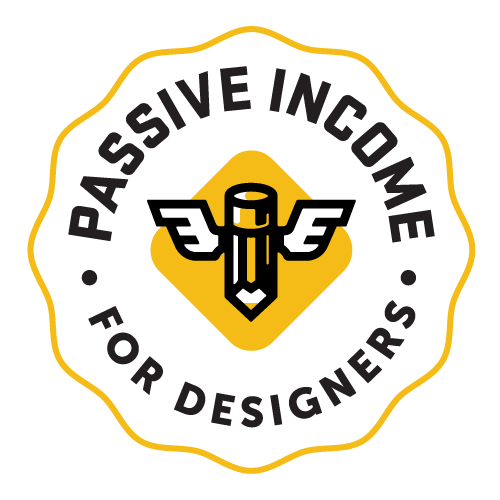Choose a niche that you love (and feels a little insane). Then search for clues that it might work.
One of the most common questions I get is "How do I choose a niche for my passive income business?"
We're all looking for our own little unique corner of the market. A place where we can make great art and people will shower us with money for doing it.
The truth is that finding the right niche is a mix of research, luck, and enough insanity to stand out.
My definition of a niche
Only you know what the right niche is for you. But here's how the gears turn in my head when I'm thinking about creating a product for a niche.
First, let me share my definition of a niche.
A niche is the overlapping of two different categories within an industry.
Here's a simple Venn diagram that might help. You can adjust the categories how you see fit but industry and resource and a good start.
By choosing a specific part of an industry and a resource you can provide you create a niche. For example, Passive Income for Designers is resources on passive income for people in the graphic design industry. Whoa, that's sorta blowing my mind!
For example, take my business, RetroSupply. I created it by overlapping retro design and tools for illustrators.
Here's another example from my friend Ian Barnard.
Ian Barnard created a niche drawn from the overlap between hand lettering and fonts.
Of course, parts of both our businesses pop out of the niche. That's what makes it interesting. But in general, we stay within those areas.
With that in mind, here's three steps I use for uncovering profitable niches that are a good fit for you.
1. Make a list of niches that excite you.
Building a side income takes significant work in the beginning. To stay motivated choose a niche that gives you a big ol' surge of joy.
Jeremy Vessey makes late 19th century fonts inspired by whiskey labels. That's pretty damn niche. But he has a blast doing it.
2. Research each niche and find one that has a big, growing or passionate market.
Search for online communities, books, and others selling similar products to be sure there's an audience for the products you want to sell.
You want a niche full of hungry customers. People who have an insatiable desire for what you make.
Here are some ways you can find out if you've got a hungry market:
- Search for online groups related to my topic (Facebook groups are an excellent place to look).
- Do a search on Amazon for books related to your niche. Can you find 5-10 with 30 or more reviews (reviews are a great way to see how many people are buying and why)?
- Find out if other people selling products within your niche? Try Googling words related to your niche. Are there popular articles, blogs, and products for sale?
- Look for tags related to your niche on social. Instagram, Dribbble, and Behance are a great place to start.
- Use Google Keywords to see if words related to your niche are getting decent traffic.
3. Choose one of the niches that you verified.
Now that you have a list of proven niches choose one that makes your soul buzz with excitement. That excitement will be the fuel that keeps you going when you feel like giving up.
At this point, you should have at least 2-3 niche ideas that look promising.
Choose one that makes your soul buzz with excitement. Then make something small and share it with people (a good place to start might be the people in the communities in Step 2).
Conclusion
There are no guarantees that you'll choose a profitable niche. Why? Because a profitable niche for one person might be a dead end for someone else.
You've got to find the right chemistry between you and the idea.
There's only one way to know for sure.
Make an educated guess, do the work, and see what happens.






